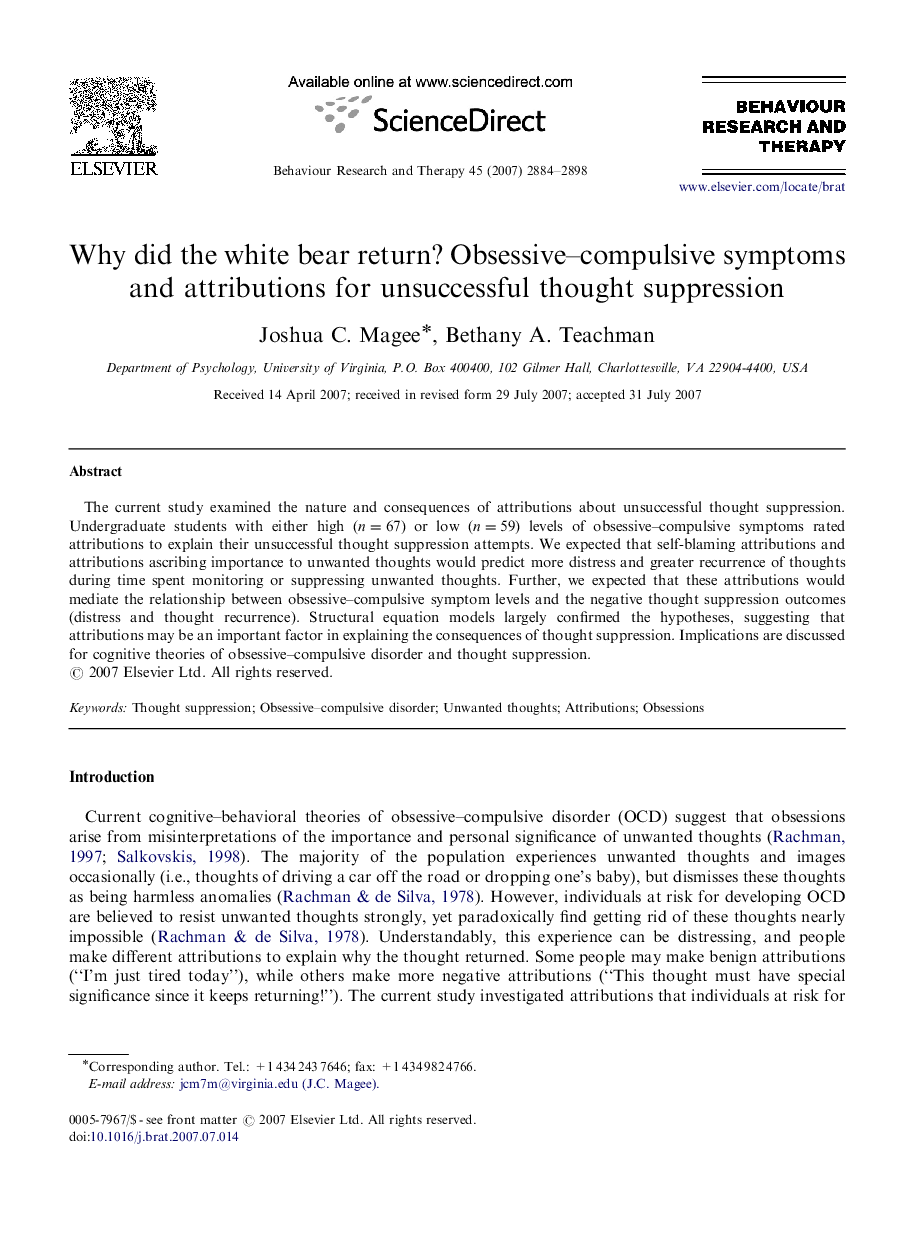| Article ID | Journal | Published Year | Pages | File Type |
|---|---|---|---|---|
| 10444835 | Behaviour Research and Therapy | 2007 | 15 Pages |
Abstract
The current study examined the nature and consequences of attributions about unsuccessful thought suppression. Undergraduate students with either high (n=67) or low (n=59) levels of obsessive-compulsive symptoms rated attributions to explain their unsuccessful thought suppression attempts. We expected that self-blaming attributions and attributions ascribing importance to unwanted thoughts would predict more distress and greater recurrence of thoughts during time spent monitoring or suppressing unwanted thoughts. Further, we expected that these attributions would mediate the relationship between obsessive-compulsive symptom levels and the negative thought suppression outcomes (distress and thought recurrence). Structural equation models largely confirmed the hypotheses, suggesting that attributions may be an important factor in explaining the consequences of thought suppression. Implications are discussed for cognitive theories of obsessive-compulsive disorder and thought suppression.
Related Topics
Health Sciences
Medicine and Dentistry
Psychiatry and Mental Health
Authors
Joshua C. Magee, Bethany A. Teachman,
